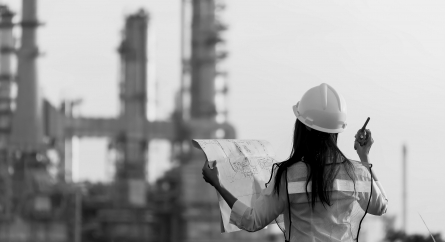A Zone Defense for Builders: Massachusetts Legislature Expands Zoning Protections for Developers Under M.G.L. Chapter 40A
At the time of our previous post on reforms to the Massachusetts Zoning Act, it was uncertain whether the House would debate the bill that the Senate passed that would have marked the first major reform to the Zoning Act since the 1970s. While the House did not take any further action on that bill, the Massachusetts Legislature did make smaller modifications to the Zoning Act that were signed into law by Governor Baker.
Sections 29 and 30 of Chapter 219 of the Acts of 2016 revised G.L. c. 40A, Sections 6 and 9 to benefit developers. Section 29 doubles the time developers are protected from changes to municipal zoning regulations after receiving building or special permits. Previously, projects were protected from changes to municipal zoning regulations if they began construction within six months, sometimes referred to as a “zoning freeze.” Section 29 extends the zoning freeze to twelve months. Section 30 also increases the amount of time that developers have to commence construction after receiving special permits. Previously, municipalities could not grant special permits that would lapse more than two years after their issuance (excluding any appeals period) if construction had not begun. Section 30 increases the allowable expiration period to three years. Developers should be aware, however, that while it is now permissible for a municipality to allow up to three years, municipalities are not obligated to do so and may continue using the two year limit.
Sections 29 and 30 are welcome changes to the Zoning Act, giving developers more breathing room to secure financing, finalize construction contracts and deal with any other delays that may arise between receiving their building and special permits and putting shovels in the ground.
Chapter 184 of the Acts of 2016 amends G.L. c. 40A, Section 7, which previously provided that structures erected or improved in violation of municipal zoning regulations were protected from civil or criminal suits to recover fines or compel their removal, alteration or relocation after a period of either six years for structures constructed in accordance with the terms of their original building permit, or ten years in all other cases. Property owners relying on Section 7 had to seek variances in order to alter, extend or reconstruct their nonconforming structures – a difficult prospect in most cases.
Chapter 184 now provides that after a period of ten years, any structures erected or improved in violation of municipal zoning regulations, provided no criminal or civil suit has been brought against the owner within that time period, are legal nonconforming structures, and owners seeking to alter, extend or reconstruct such structures will be subject to a so-called Section 6 finding that such change is not substantially more detrimental than the existing nonconforming use to the neighborhood. This change in the law reduces the burden owners have to overcome in order to alter, extend or reconstruct their nonconforming structures. Chapter 184 became effective as of November 2, 2016, but it applies to all structures whether erected or improved before or after the effective date. Lastly, for structures erected or improved between nine and ten years prior to the effective date (i.e., structures erected or improved between November 2, 2006 and November 2, 2007), the time to file a suit is extended for an additional six months beyond the ten year statute of limitation period.
Categorized: Development, Zoning
Tagged In: Developers, Massachusetts Zoning Act





